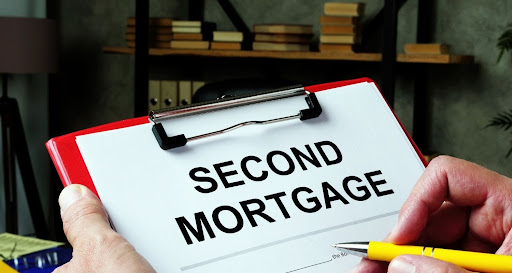A second mortgage is a loan taken out using your house as collateral when you already have a loan secured by it. Some people take out a second mortgage to make a down payment on a home. Others do so in order to pay off debt or finish home improvements.
You should not make this choice lightly since it has far-reaching consequences. It is critical to understand how the process works, how to get a second mortgage, and how it will influence your finances now and in the future.
The Key Takeaways
- A second mortgage is a loan that you take out using your home as collateral when you already have a loan secured by it.
- The loan is called “second” because it will be paid after the first lender’s loan if you fail and have to sell your property to pay off the debt.
- There’s also the possibility of a cash-out refinancing. This form of loan converts your old debt into a new one. It permits you to cash in the difference.
What is a Second Mortgage and How Does It Work?
Like a first mortgage, a second mortgage is a loan that is secured by your property. However, it’s a second mortgage on a home that’s already mortgaged. The mortgage is called “second” since it comes after the first lender in line for payment. If you can’t pay your mortgages and have to sell your property to pay off your obligations, this loan will be paid last.
Second mortgage interest rates are often higher. In the case of default, the second mortgage lender will only get money if there is any left after the first mortgage is paid off. Higher interest rates compensate for this risk.
What Is a Home Equity Loan and How Does It Work?
The equity in your house serves as collateral for a HEL. After removing your debts, equity is the worth of your house that remains.
The loan funds would be given to you in one lump payment, with a loan duration ranging from five to thirty years. You’ll have to pay it back in fixed monthly installments, plus interest. Although there may be some initial costs, the interest rate is guaranteed. It does not alter with time. This ensures consistent monthly payments.
Make sure you’ll be able to afford the monthly installments. If you don’t return the HEL, the lender may foreclose on your house.
How a Home Equity Line of Credit Works
A home equity line of credit is a revolving credit line that enables you to “draw” or borrow against your home equity.
You’ll be handed checks or a credit card with which you may withdraw funds as needed, up to the lender’s allowed limit. This may be done during a “draw period” of a set length of time, usually ten years.
When the draw term finishes, you’ll enter a second set period of years known as the payback period. This has a 20-year lifespan. You must make regular payments on the balance you owe during this time. The principle and interest will be included in the installments.
Using a Second Mortgage As a Down Payment
Some individuals utilize a second mortgage to pay for a down payment or closing costs that they couldn’t afford otherwise. Others take up a “piggyback” second mortgage to qualify for their primary mortgage and avoid paying PMI, even if they don’t have enough cash on hand to make a 20% down payment.
The interest rates on a second mortgage and a piggyback second mortgage are both higher. You may potentially find yourself in default on your loan. Making a 20% down payment will help you to avoid paying PMI and qualify for reduced first-mortgage interest rates. You may have a better financial start on your house financing. You can prevent the possibility of losing your house.
Taking Out a Second Mortgage
The procedure for obtaining a second mortgage is identical to that of obtaining your first. Proof of work, income, credit score, and other debts will be required. In addition, you’ll need adequate equity in your property. You’ll need to have your house assessed to acquire an estimate of its current worth, which the lender will use to determine how much equity you have. All of these considerations will be reflected in the loan amount and interest rate.
You may start the process by applying for a loan at your local bank or credit union. Inquire about any application, origination, or appraisal costs the lender charges. Not all of them do. Expect a second mortgage to have a somewhat higher interest rate than your first mortgage, but it will still be cheaper than unsecured loans like credit cards.

